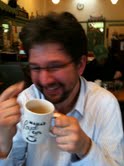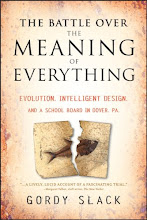 |
| Frédéric Chopin (1810-1849) |
Van Gough, Dostoevsky, da Vinci, Giorgio de Chirico, Michelangelo, and Dickens are all argued to have had epilepsy. Their diagnoses are mostly ex post facto and speculative, and some of are more controversial than others, but there definitely seems to be some kind of association between epilepsy and the making of great and revolutionary art.
A Spanish radiologist at the Xeral-Calde Hospital Complex in Lugo, Spain, has just published a study in the latest issue of Medical Humanities arguing that Frédéric Chopin should be added to the roster of genius artists suffering from temporal lobe epilepsy (TLE).
A close reading of Chopin’s diaries and letters, and of Chopin’s lover George Sands’s first-hand accounts, reveal a young composer suffering from symptoms that look a lot like TLE, says the radiologist, Manuel Varquez Caruncho. Chopin’s complex, recurring, short, and predominantly visual hallucinations are much more symptomatic of TLE than schizophrenia or medication poisoning, the leading alternative hypotheses. Chopin’s hallucinations—he once walked out of a concert in the middle of performing a piece because he saw strange creatures spilling out of his piano—lasted a maximum of a couple of minutes, and Chopin could remember and discuss them clearly. They were also recurring; all of which suggests TLE.
Artists with epilepsy whose seizures are focused in one part of the brain may have heightened sensibilities that relate to that region’s function. Van Gough’s use of wild and otherworldly colors, for example, may partly be a product of his intense vision-modifying seizures. Others experience amplified smells, sounds, or even ecstatic—and sometimes, religious--emotions in association with their seizures. Sometimes these alterations are subtle; sometimes they are overwhelming. Dostoevsky said of his auras, “I would feel the most complete harmony in myself and in the whole world and this feeling was so strong and sweet that for a few seconds of such bliss I would give ten or more years of my life, even my whole life perhaps.”
When these extraordinary modes of experience are combined with extraordinary expressive talent (as they will inevitably be, given how common epilepsy is) the product may be a paradigm-shifting artist. Chopin, if Caruncho is right, certainly fits the bill.
When these extraordinary modes of experience are combined with extraordinary expressive talent (as they will inevitably be, given how common epilepsy is) the product may be a paradigm-shifting artist. Chopin, if Caruncho is right, certainly fits the bill.


No comments:
Post a Comment